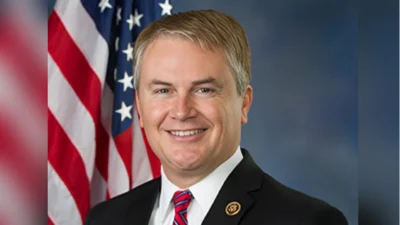Dear Ms. Blakey:
We are writing to enlist the assistance of the Federal Aviation Administration in our ongoinginvestigation of abusive tax shelters. On Oct. 21, 2003, the Committee on Finance held a hearingregarding the continuing proliferation of abusive tax shelters. During that hearing, we learned thatshelter promoters are engaging in transactions with U.S. municipalities and other state and localgovernmental units, which allow major U.S. corporations to depreciate state and local infrastructureassets, such as railways, subways, dams, water lines, and air traffic control systems. Our subsequentinvestigations have disclosed that federal agencies have endorsed these transactions, even thoughthe Department of the Treasury had classified them as abusive tax shelters.
Under this scheme, municipalities are paid an up-front cash fee to enter into a long-term leaseof their infrastructure to the tax shelter promoters. The cash received by the municipality, however,pales in comparison to the federal tax benefits received by the corporations, which will be able todepreciate taxpayer-funded bridges, subways, and rail systems as a result of the lease. As part of thesame agreement, the promoters will agree to simultaneously lease the assets back to the municipality.The obligations of the promoters and municipalities are prepaid through "phantom" debt, and neitherthe tax promoters nor the municipality assumes any credit or ownership risk. At the end of the leaseterm, the infrastructure assets revert back to the municipality through a pre-funded repurchasearrangement. In reality, nothing changes regarding the ownership or use of the infrastructure. Onemunicipal manager described these transactions as "people giving him money which he never hadto pay back, for doing something that he was already doing."
In March 1999, the Department of the Treasury under the Clinton Administration initiatedenforcement actions against these transactions, which are called LILOs - an abbreviation of theirindustry name "lease-in-lease-out" transactions. We have further learned that these transactions havecontinued, albeit in a different form, and that other federal agencies may be approving thesetransactions. The LILO transactions have now been replicated through service agreement contractsand transactions called SILOs -- "sales-in-lease-out." Other variations on these transactions haveinvolved qualified technology equipment (QTEs). We have been advised that state and localinfrastructure projects which receive federal funding must obtain the review and approval of theFederal Aviation Administration in order to enter into these transactions.
We are certain that you share our concern that water lines, waste treatment plants, and airtraffic control systems constructed with taxpayer dollars are being used by big corporations to shelterbillions of dollars in taxes through bogus depreciation deductions. In order to assist us in assessingthe scope and scale of this problem, we request that the Federal Aviation Administration submit tothe Committee on Finance copies of all documents relating to LILOs, SILOs, QTEs, and similartransactions that have been approved, funded, or otherwise reviewed by the Federal AviationAdministration from the year 1995 to present.
We appreciate your cooperation in our ongoing efforts to combat abusive tax shelters, andlook forward to receiving these materials as soon as possible.
With best personal regards,
Charles E. Grassley
Chairman
Max Baucus Ranking Member
-30-
Source: Ranking Member’s News








